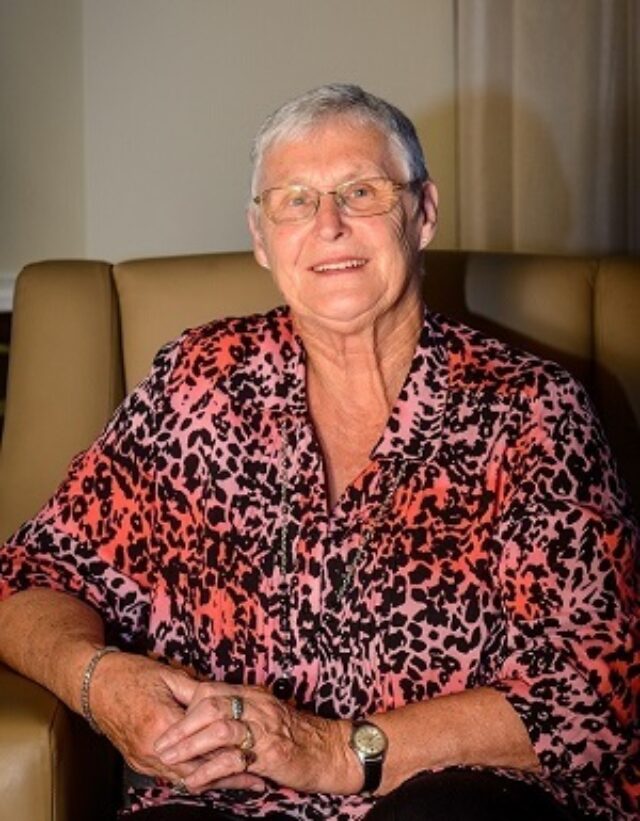
Pauline experienced what she describes as “the biggest wakeup call” 25 years ago while working as a nurse aid. She made a strong and determined decision to quit and hasn’t looked back since. Pauline acknowledges that quitting is “such a big thing” and shares her advice on how to do it for 31 May, World Smokefree Day.
You’re worth it
Pauline says, “You’ve got to believe that you’re worth being healthier and this is your life, and you want the best for yourself.” Use positive self-affirmations, such as “I’m worth giving up for. My health is in my hands. This is up to me.” Realise that you’re worth making the effort for.
Decide you want it
Make a decision that it’s what you want. “Even though your family want it for you, it’s not until you want it for yourself that will make you do it.” Once the decision is made, go in with a wholehearted approach. “I had a few attempts before and they were half hearted. That was a shocker,” says Pauline. To increase your chances of being successful, you’ve got to give it your all.
No excuses
People use a lot of excuses in order not to give a second thought about giving up. When talking about damage done to the lungs, some people may say “Oh well the damage has been done, it’s not worth giving up.” Pauline says, “That’s ridiculous, it’s just another excuse to keep going.” Be mindful of whether you’re taking small steps towards action, or just making another excuse.
Change of habits
A major part of quitting is changing your habits. “My smoking habits were everything. I’d light a cigarette every time the phone rang, and every time I’d go out to get the mail,” says Pauline.
“After a meal I’d sit back with a cup of coffee and a cigarette. I also gave up coffee and didn’t drink it for 20 years. Now I only have one a day.” Identify what you associate with smoking and avoid it.
If you need to, replace smoking with healthier options. “Some people start chewing gum. I drank lots of water, and chewed on sunflower seeds.”
Also, aim to stay away from people who smoke even if it’s difficult at first. “There was no point in being around people who smoked all the time, which was old habits.” A major key to giving up smoking for good is changing those old habits and creating new healthy ones.
Managing stress
One reason a lot of people smoke is as a method of stress relief or to calm them down. “It’s strange because you have it in your head, to light a cigarette is calming. But in actual fact it’s not.” It’s important to change that thinking and belief. “The medical fact is that it doesn’t calm you down, it does the opposite.”
Instead of using cigarettes as a way to reduce stress, a better way is through exercise. Pauline recommends, “Exercising with like-minded people, who are encouraging and positive.”
Benefits
Focus on the numerous health benefits to giving up smoking. Pauline describes the benefits she found shortly after quitting. “Food tasted better. You don’t realise how much your sense of taste has been dulled. And just the fact that you feel cleaner.”
There is also the huge benefit of not smelling like smoke. “You don’t realise the ghastly smell that’s in everything, your clothes, curtains, everything. You’re immune to all those smells, and you don’t realise what other people are putting up with.” Pauline explains it’s quite shocking once you stop smoking and become hypersensitive to the smell.
Fatter pocket
A packet of cigarettes is money that could be spent on other essentials, such as fresh fruit, vegetables, bread and meat. Pauline says, “I smoked 40 a day, just imagine the cost today.” Especially if you have a family and stretching the budget, quitting can really make a big difference on finances. “Looking back at what I could have got extra for my kids if I hadn’t been smoking, that’s where I have a lot of guilt.” However it’s never too late to start making a positive change.
More positivity
Having a positive attitude is beneficial for everyone, and Pauline wakes up every morning with positive thoughts. “How lucky I am, thank goodness I don’t smoke anymore. I get up and don’t smell like cigarette smoke and don’t need one or want one. I’m so grateful for the wakeup call I had.” The wakeup call saved Pauline’s life. “Imagine if I’d smoked for the last 25 years, well I’d be dead I’m sure of it.”
Wakeup call
Everybody has their own wakeup calls, and for Pauline it was one morning 25 years ago when she found herself coughing. It took her right back to the days of nurse aiding, when she had to empty the sputum (mixture of saliva and mucous) containers. “I’d hear everyone hoicking up every morning and I thought how revolting. One morning, I heard myself coughing and thought, oh my god I’m just like them. It was the biggest wakeup call and I was devastated and shocked. And I gave up.”
As Pauline’s last piece of advice she quotes well-known proverb, “Nothing succeeds like success.” She explains the more you do it, the better you feel and this gets you closer towards your goal.
Pauline was a recipient of the national COPD Achievers Award 2016, presented by the Asthma and Respiratory Foundation NZ. Pauline advocates being Smokefree and also the benefits of attending pulmonary rehabilitation for those with respiratory conditions.
COPD = chronic obstructive pulmonary disease